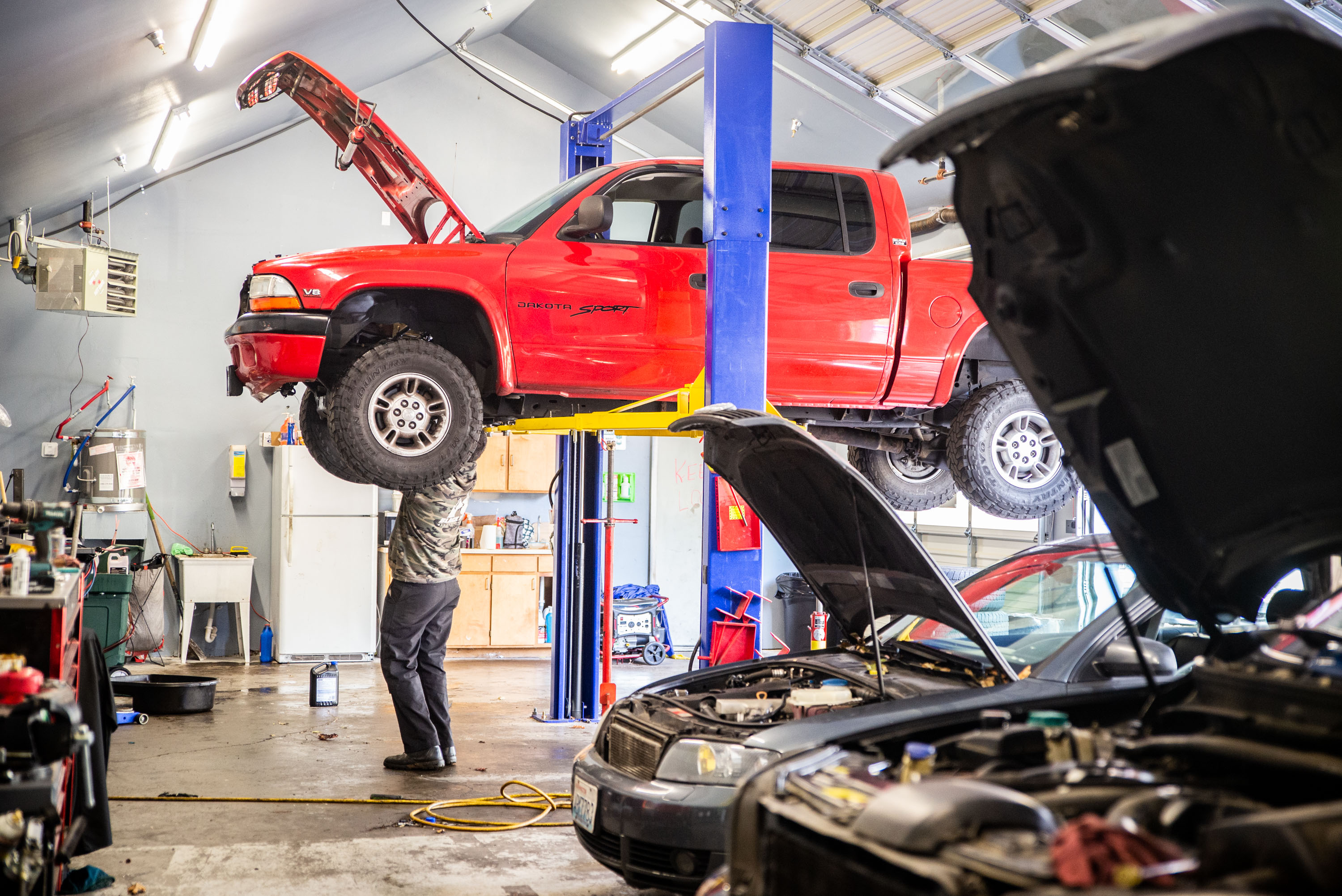All Categories
Featured
Table of Contents
Numerous auto owners commonly forget regular upkeep, assuming it is an unnecessary cost. Routine upkeep services are vital for guaranteeing an automobile's long life and integrity.
![]()
For example, a professional may notice that the brake liquid is reduced, which could suggest a leakage in the system. Resolving this issue without delay ensures that the braking system continues to be risk-free and reliable, protecting against accidents and comprehensive repair work in the future.
As an example, a dirty air filter can limit air movement to the engine, causing it to function more challenging and take in more gas. Frequently changing the air filter makes sure that the engine operates successfully, saving cash at the pump. This not only profits the environment yet also supplies significant savings gradually.
As an example, used brake pads can significantly minimize quiting power, increasing the risk of accidents. Regular maintenance helps determine such problems, ensuring that security systems operate correctly and keeping motorists and passengers secure on the roadway.
Having service documents not just enhances customer confidence yet also demonstrates that the lorry remains in excellent condition, allowing sellers to work out a better rate. For that reason, routine maintenance not just prolongs the life of an automobile yet likewise safeguards its financial value.
In addition, routine maintenance ensures that the automobile runs effectively, leading to lower fuel prices. Essentially, what might appear as an ahead of time cost transforms right into lasting savings, making routine upkeep a smart financial investment.

1. Early Discovery of Issues.
Among the key benefits of routine maintenance is the capacity to discover problems early. Throughout regular evaluations, auto mechanics can recognize signs of damage that may not be obvious to the automobile proprietor. Whether it's a small oil leak or worn brake pads, catching these problems early can avoid them from intensifying into significant, expensive repair services.For example, a professional may notice that the brake liquid is reduced, which could suggest a leakage in the system. Resolving this issue without delay ensures that the braking system continues to be risk-free and reliable, protecting against accidents and comprehensive repair work in the future.
2. Optimum Fuel Efficiency.
Regular upkeep services significantly affect a vehicle's fuel effectiveness. When all parts of an automobile are operating correctly, it calls for less energy to operate, leading to much better mileage. Services like oil adjustments, air filter substitutes, and tire rotations assist keep optimum performance, minimizing the amount of gas eaten.As an example, a dirty air filter can limit air movement to the engine, causing it to function more challenging and take in more gas. Frequently changing the air filter makes sure that the engine operates successfully, saving cash at the pump. This not only profits the environment yet also supplies significant savings gradually.
3. Improved Security Functions.
Safety and security must constantly be a top concern for vehicle proprietors. Normal maintenance helps ensure that all safety and security features, such as tires, fronts lights, and brakes, are in good functioning problem. Regular evaluations enable auto mechanics to assess these systems, making needed fixings or replacements.As an example, used brake pads can significantly minimize quiting power, increasing the risk of accidents. Regular maintenance helps determine such problems, ensuring that security systems operate correctly and keeping motorists and passengers secure on the roadway.
4. Enhanced Resale Worth.
When the moment comes to market or trade in a lorry, a well-maintained vehicle commonly regulates a greater resale worth. Possible buyers are a lot more most likely to buy a car that includes a documented background of normal upkeep. This document indicates that the car has actually been taken care of and is less likely to have hidden issues.Having service documents not just enhances customer confidence yet also demonstrates that the lorry remains in excellent condition, allowing sellers to work out a better rate. For that reason, routine maintenance not just prolongs the life of an automobile yet likewise safeguards its financial value.
5. Decreased Total Costs.
Investing in routine upkeep may feel like an added cost, however it can conserve vehicle proprietors money in the lengthy run. Preventative upkeep helps avoid major repair work that can be financially draining pipes. As an example, routinely altering the oil and changing filters can prevent engine damage, which can result in expensive repairs and even engine replacement.In addition, routine maintenance ensures that the automobile runs effectively, leading to lower fuel prices. Essentially, what might appear as an ahead of time cost transforms right into lasting savings, making routine upkeep a smart financial investment.
Conclusion.
Routine upkeep solutions are essential for lengthening a car's life-span, boosting efficiency, and making certain security. By buying routine assessments and timely repair services, car proprietors can enjoy an extra trusted driving experience and prevent the substantial expenses related to significant repair work. Furthermore, routine maintenance boosts resale worth, making it a clever monetary decision. Inevitably, committing to a normal upkeep timetable is not nearly maintaining a car running; it's regarding guaranteeing and shielding a financial investment safety on the roadway.Table of Contents
Latest Posts
Host Your Perfect Occasion: Venue Rental Alternatives for Every Event
Published Mar 22, 25
1 min read
Picking the Right Venue: What to Consider for Wedding Events, Seminars, and Events
Published Mar 14, 25
1 min read
Discover Leisure at the Claridge Indoor Swimming Pool
Published Jan 30, 25
1 min read
More
Latest Posts
Host Your Perfect Occasion: Venue Rental Alternatives for Every Event
Published Mar 22, 25
1 min read
Picking the Right Venue: What to Consider for Wedding Events, Seminars, and Events
Published Mar 14, 25
1 min read
Discover Leisure at the Claridge Indoor Swimming Pool
Published Jan 30, 25
1 min read